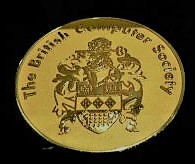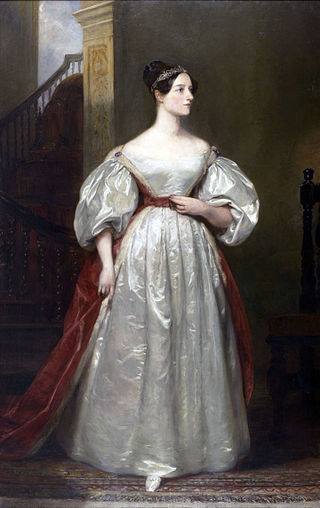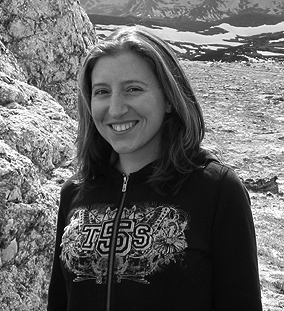
Augusta Ada King, Countess of Lovelace, also known as Ada Lovelace, was an English mathematician and writer chiefly known for her work on Charles Babbage's proposed mechanical general-purpose computer, the Analytical Engine. She was the first to recognise that the machine had applications beyond pure calculation.

The Lovelace Medal was established by the British Computer Society in 1998, and is presented to individuals who have made outstanding contributions to the understanding or advancement of computing. It is the top award in computing in the UK. Awardees deliver the Lovelace Lecture.

Women in computing were among the first programmers in the early 20th century, and contributed substantially to the industry. As technology and practices altered, the role of women as programmers has changed, and the recorded history of the field has downplayed their achievements. Since the 18th century, women have developed scientific computations, including Nicole-Reine Lepaute's prediction of Halley's Comet, and Maria Mitchell's computation of the motion of Venus.

Dame Wendy Hall is a British computer scientist. She is Regius Professor of Computer Science at the University of Southampton.

Suw Charman-Anderson is the former Executive Director of the Open Rights Group, a campaign group based in London. She is also a journalist, social software consultant, blogger and public speaker. Named one of the "50 most influential Britons in technology" by The Daily Telegraph, she has also worked to gain recognition for other women in technological fields, including by founding Ada Lovelace Day.

An edit-a-thon is an event where some editors of online communities such as Wikipedia, OpenStreetMap, and LocalWiki edit and improve a specific topic or type of content. The events typically include basic editing training for new editors and may be combined with a more general social meetup. The word is a portmanteau of "edit" and "marathon". An edit-a-thon can either be "in-person" or online or a blended version of both. If it is not in-person, it is usually called a "virtual edit-a-thon" or "online edit-a-thon".

Gender bias on Wikipedia includes various gender-related disparities on Wikipedia, particularly the overrepresentation of men among both volunteer contributors and article subjects, as well as lesser coverage of and topics primarily of interest to women.

The Innovators: How a Group of Hackers, Geniuses, and Geeks Created the Digital Revolution is an overview of the history of computer science and the Digital Revolution. It was written by Walter Isaacson, and published in 2014 by Simon & Schuster.

Maia Weinstock is an American science writer and Lego enthusiast who resides in Cambridge, Massachusetts. She graduated from Brown University in 1999, and is the Deputy Editor of MIT News.

The English Wikipedia has been criticized for having a systemic racial bias in its coverage. This bias partially stems from an under-representation of people of color within its volunteer editor base. In "Can History Be Open Source? Wikipedia and the Future of the Past," it is noted that article completeness and coverage is dependent on the interests of Wikipedians, not necessarily on the subject matter itself. The past president of Wikimedia D.C., James Hare, asserted that "a lot of [Black American history] is left out" of Wikipedia, due to articles predominately being written by white editors. Articles about African topics that do exist are, according to some, largely edited by editors from Europe and North America and thus, they only reflect their knowledge and their consumption of media, which "tend to perpetuate a negative image" of Africa. Maira Liriano of the Schomburg Center for Research in Black Culture has argued that the lack of information regarding Black history on Wikipedia "makes it seem like it's not important."

Art and Feminism is an annual worldwide edit-a-thon to add content to Wikipedia about women artists, which started in 2014. The project has been described as "a massive multinational effort to correct a persistent bias in Wikipedia, which is disproportionately written by and about men".
The Fembot Collective is an international collective of feminist media activists, artists, producers, and scholars that publishes the academic journal Ada: A Journal of Gender, New Media, and Technology. Fembot has been a catalyst for multiple large scale feminist digital projects, providing the digital and social infrastructure for FemTechNet, publishing the podcast series Books Aren't Dead, and hosting collaborative hack-a-thons and Wikipedia edit-a-thons with Ms. magazine. Although having been funded and supported by multiple institutions including School of Journalism and Communication and the Center for the Study of Women in Society at the University of Oregon., Fembot is concentrated in the University of Maryland currently.

Dame Rosie Gojich Stephenson-Goodknight, is an American Wikipedia editor, known on the site under the pseudonym Rosiestep, who is noted for her attempts to address gender bias in the encyclopedia by running a project to increase the quantity and quality of women's biographies. She has contributed thousands of new articles.

WikiConference North America, formerly WikiConference USA, is an annual conference organized by the Wikipedia community in North America.

Women in Red is a WikiProject addressing the current gender bias in Wikipedia content. The project focuses on creating content regarding women's biographies, women's works, and women's issues.

Jessica Alice Feinmann Wade is a British physicist in the Blackett Laboratory at Imperial College London, specialising in Raman spectroscopy. Her research investigates polymer-based organic light emitting diodes (OLEDs). Her public engagement work in science, technology, engineering, and mathematics (STEM) advocates for women in physics as well as tackling systemic biases such as gender and racial bias on Wikipedia.

Dawn R. Bazely is a full professor in biology in the Faculty of Science, and the former Director of the Institute for Research Innovation in Sustainability, at York University in Canada. In 2015 she was awarded the title of University Professor for services to research, teaching, and the institution. Bazely has been a field biologist for forty years and her research specializes in plant-animal interactions in ecology. She has also been recognized for her science communication.

Adele Mildred Koss, known as Milly Koss, was an American pioneering computer programmer. The Association for Women in Computing awarded her an Ada Lovelace Award in 2000.

Jason Moore is an American Wikipedia editor among the English Wikipedia's most active contributors by edit count. Editing since 2007 as "Another Believer", he has specialized in current events, with coverage including the COVID-19 pandemic, George Floyd protests, and the culture of Portland, Oregon, where he is based. On Wikipedia, Moore has created and developed editor affinity groups for joint work on these topics. As an organizer in the Wikimedia movement, Moore has hosted meet-ups and edit-a-thons to train new editors.


















